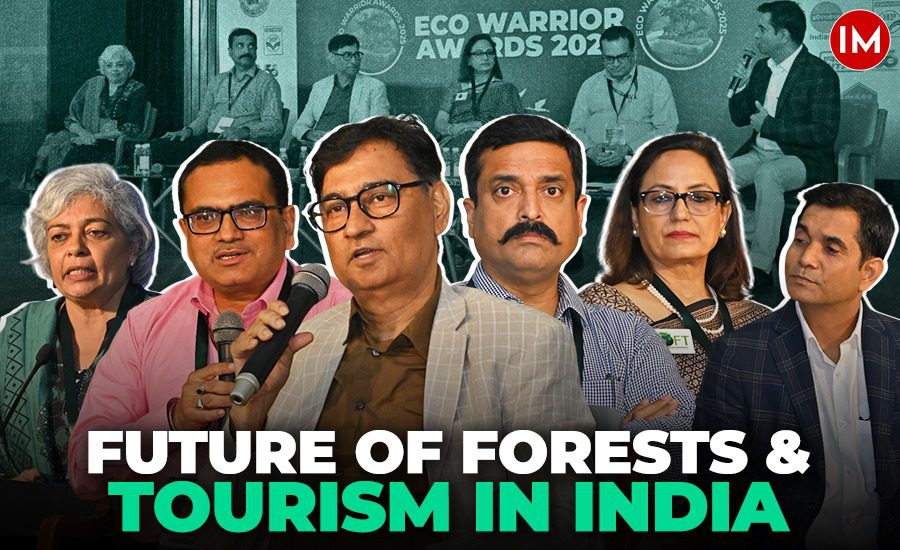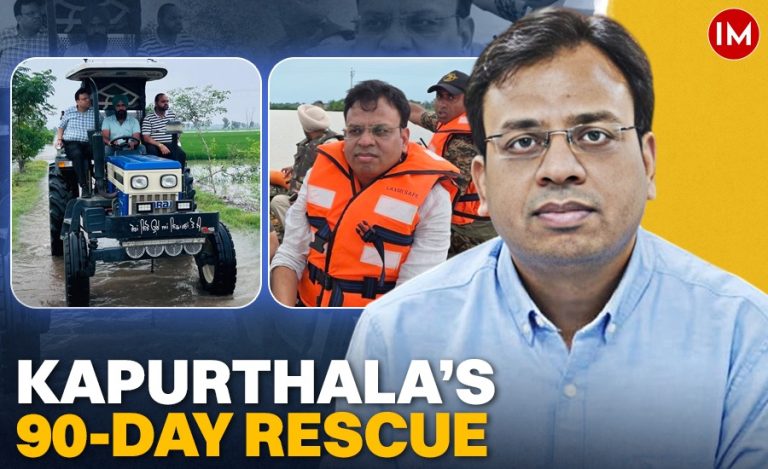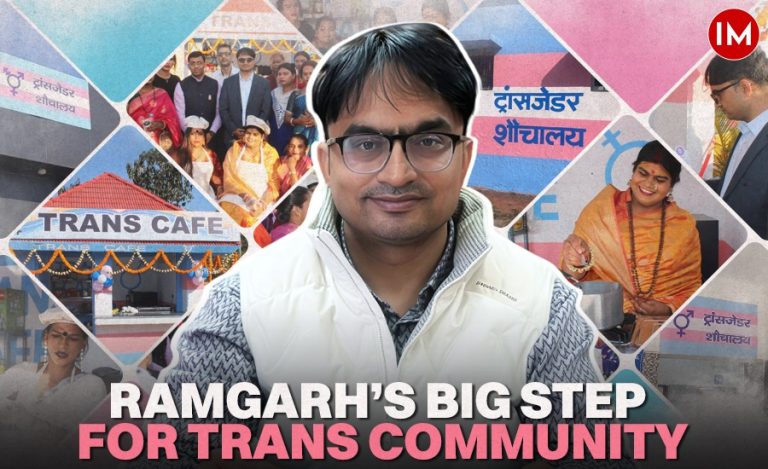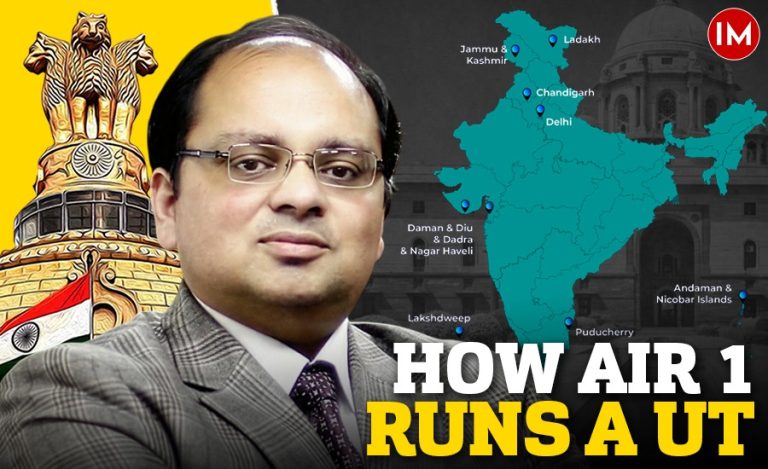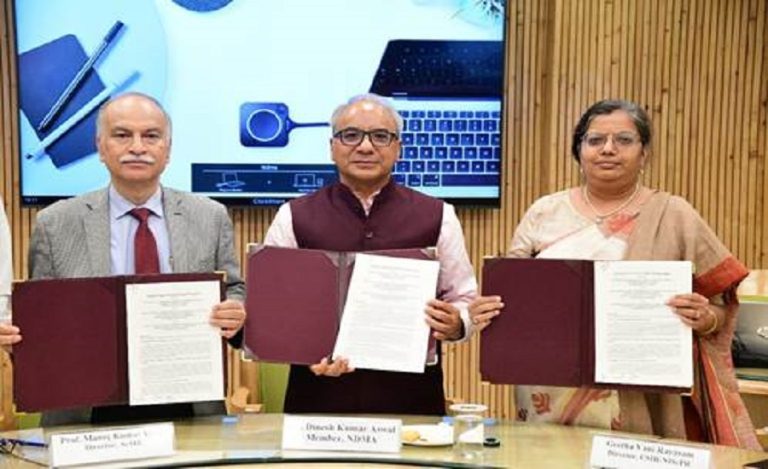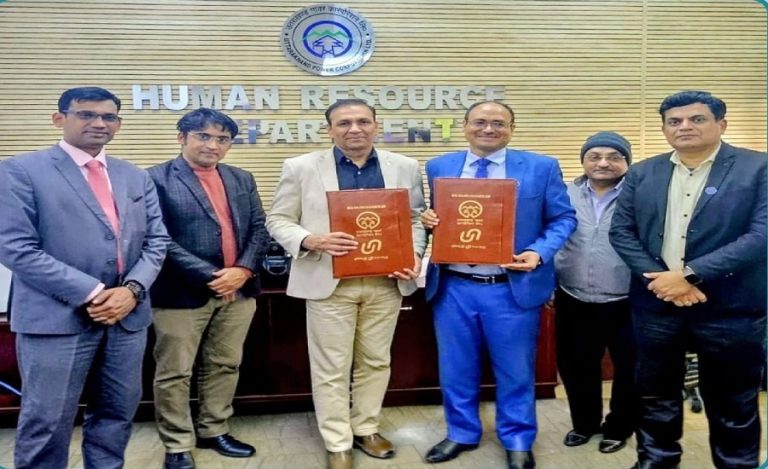In a landmark event recognizing India’s environmental protectors, the third edition of the Eco Warrior Awards was held with grandeur and purpose. This was the first dedicated award show for Indian Forest Service (IFS) officers, making it a milestone moment in India’s conservation journey. The celebration coincided with National Forest Martyrs Day, further deepening its significance.
Amidst the honors and tributes, the event featured two compelling panel discussions. The first panel, titled “Eco-Tourism for the Future,” brought together leading voices in conservation, policy, and community development. It addressed how responsible eco-tourism can serve as a tool for sustainable development, livelihood generation, and environmental stewardship.
This panel discussion was chaired by IFS officer Mr Vidya Bhushan and moderated by senior journalist Mr Manoj Singh. The esteemed panel included Ms. Sejal Vohra from WWF India, Mr. Anoop K.R., Field Director of Ranthambore Tiger Reserve, Mr. Nishant Verma, a seasoned IFS officer, and Ms. Deepika Chaudhary, Director of TOFT. Together, they explored how eco-tourism can drive conservation, empower communities, and promote sustainable development.
Panel Overview: Eco-Tourism for the Future
Opening the panel, Mr Vidya Bhushan set the tone by highlighting the massive economic and ecological potential of eco-tourism in India. He emphasized that-
- Eco-tourism has generated 4 crore jobs, showcasing its power to drive inclusive growth.
- However, the focus must shift from profit-making to responsibility.
- Climate change, especially in regions like Kullu and Manali, demands immediate and mindful action.
- The lack of standards and policy frameworks is a major gap.
- Skill development and a clear policy roadmap are vital for long-term impact.
Ms. Seejal Vohra (WWF): “Small is Beautiful, Local is Powerful”
Ms. Seejal Vohra from WWF shared a deeply insightful case study from Mussoorie, where a forest conservation project successfully combined tourism, conservation, and local engagement. Key takeaways from her session included:
- A business model involving local communities led to job creation and youth empowerment.
- A “trainer-to-trainers” model helped scale the initiative.
Core principles from her experience–
- Opportunities must be created, not awaited.
- Keep it local – communities will protect what they connect with.
- Transparency and clear objectives are essential.
- Avoid over-marketing. Let good work speak for itself.
- Build strong partnerships to support forest management.
Nishant Varma, IFS: “Uttarakhand – A Natural Eco-Tourism Powerhouse”
Mr. Nishant Varma brought the audience’s attention to Uttarakhand, a region brimming with natural beauty, bird-watching potential, and clean air. He discussed–
- Ongoing conservation projects that are creating employment for locals.
- A strong community-driven eco-tourism model, where youth are being trained and empowered.
- The state’s model offers a template for other regions to replicate eco-tourism success while preserving biodiversity.
Anoop K.R, IFS: “Conservation with Co-Creation”
Mr. Anoop shared a powerful transformation story from his earlier posting at the Periyar Tiger Reserve. He explained that, in the past, many locals were involved in illegal forest activities. However, through positive engagement and trust-building, the forest department successfully integrated them into conservation efforts, turning former offenders into dedicated protectors of the forest. As a result, no incidents of elephant poaching have been reported in the reserve for the past 25 years. He emphasized that even small initiatives like bird watching, camping, and eco-guiding have had significant ripple effects, contributing to both conservation and community development.
He emphasized–
- Programs must be executed by dedicated teams, not just forest officials.
- The financial component is inevitable – conservation needs economic viability.
- Conservation should be about co-creation, not control.
Mrs. Deepika Chowdhary, TOFT: “Sustainability is Not a Trend – It’s a Demand”
Mrs. Deepika Chowdhary, representing TOFT (Travel Operators for Tigers), spoke about their journey in creating pressure and awareness among tourism stakeholders:
- TOFT gained recognition in 2015 for their sustainable tourism efforts.
- Introduced certification programs to maintain standards in tourism.
Highlighted the international demand for sustainability, urging Indian eco-tourism operators to rise to global expectations.
Concluding Thoughts: A Roadmap for Regenerative Eco-Tourism
In his closing remarks, Mr. Vidya Bhushan returned to underline the urgent need for “regenerative eco-tourism”, a model that-
- Restores ecosystems instead of just sustaining them.
- Addresses the gap between policy and implementation.
- Extends conservation beyond tigers to entire ecosystems and communities.
- Promotes naturalist schools and environmental education.
- Encourages partnerships between Union, State, and local communities.
He concluded with a strong message: “The future of eco-tourism lies in empowering people and protecting nature, together.”
Final Reflection: A Call to Action
The Eco Warrior Awards 2025 was more than a celebration – it was a clarion call for India to reimagine eco-tourism not as an industry, but as a movement of responsibility, opportunity, and regeneration. With community at the heart, and nature as the guiding force, the path to sustainable development is not only possible – it is already in motion.

